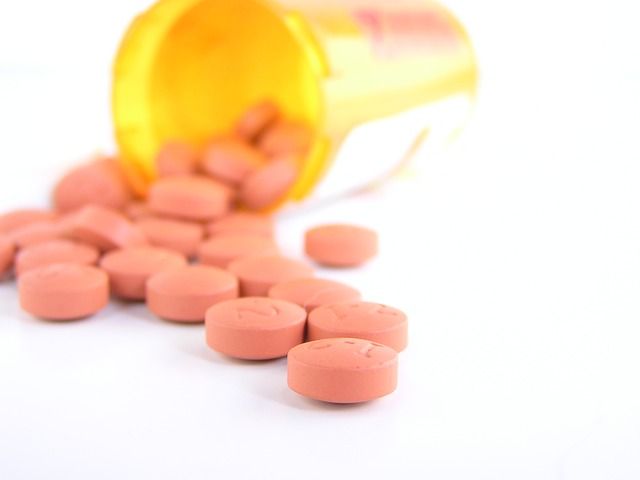
Bass v. SC DSS: Gross Negligence and the “Thorough Investigation”
Recently, I shared a post about a case from South Carolina – the Bass v. SC DSS case. That post was strictly a “first-glance” opinion, but I think the case deserves a closer look and analysis.
It plainly demonstrates some of the many problems inherent in a tort claim against a child welfare agency stemming from false allegations of abuse. I also believe the case neatly illustrates the need for a political solution to the growing DSS/false abuse allegation problem in the U.S.
The Facts of the Bass Case
The Bass family first encountered DSS in May 2008. Earlier, Diane Bass had refilled her children’s prescription medication at a local pharmacy. When the children took the medication, they fell gravely ill and their attentive parents took the children to the local hospital’s emergency room.
There, medical professionals initially suspected poisoning and reported the same to DSS. By statute, this South Carolina child welfare agency had twenty-four hours to investigate such a report.
Arriving at the ER forty-five minutes after receiving the complaint, the caseworker picked up lab tests from the hospital (which were inconclusive as to poisoning), and then convinced the frightened parents to voluntarily agree to placing their children in temporary foster care pending a fuller investigation.
The caseworker admitted at trial that she did not actually speak to any treating physician for the children during that ER visit.
What happened, as all parties discovered soon thereafter and admitted at trial, was that the pharmacist had mistakenly prepared the prescriptions at over one thousand times the proper concentration. The children were returned to the custody of their parents eight days later.
The parents sued DSS for defamation, gross negligence, and intentional infliction of emotional distress. The jury returned a verdict in their favor after trial and awarded damages in the amount of $4,000,000.
DSS then renewed its motion for a directed verdict (made after the plaintiff’s case in chief closed) and was again denied. DSS then appealed.
The Court’s Decision in Bass
The South Carolina Court of Appeals overturned the verdict, and found in favor of DSS.
In order to win at trial, the plaintiffs had to prove that DSS acted in a grossly negligent manner. South Carolina has enacted a Tort Claims Act, as many states (and the federal government) also have, and that legislation maintains absolute immunity for state agencies unless those agencies acted with gross negligence.
That’s a higher standard than garden-variety negligence (though not as high as the “reckless” standard). It requires a certain element of consciousness or intent – either in doing something or failing to do something that the agency and its workers are charged to do. It’s the failure to exercise slight care
When the Court of Appeals reversed the jury verdict, it did so because it felt the plaintiffs had not established that the DSS caseworker acted with gross negligence. In drawing that conclusion, it appears, the court was especially struck by the 24-hour requirement that applied to their investigation of the Bass children’s case:
Parish [the caseworker] testified the children were classified as a medium danger rating, allowing Parish merely twenty-four hours to conduct her investigation, pursuant to DSS policy. We find this time constraint, which has been specifically recognized by our supreme court, to be particularly important in our determination.
… In that time, Parish interviewed family members and learned the children became sick after Mrs. Bass administered their medicine. Parish also obtained the Basses’ consent to have the children’s medical information released to DSS. Although it was ultimately inconclusive, Parish further obtained the children’s toxicology report. While far from perfect, there is no evidence in the record indicating DSS failed to exercise slight care.
What’s troubling about this case to me is the heavy emphasis on the 24-hour requirement in light of one thing the caseworker failed to do: talk to a treating physician. How much additional time would that have taken? Minutes?
Additionally, it would not take much in the way of common sense and critical reasoning to have concluded that, when two children became ill after taking prescription medicine, maybe questions should be posed to the pharmacist who provided the medication. It’s certainly no more of an intellectual leap than assuming ill intent on the part of an obviously concerned parent.
What this case means for other plaintiffs in other states: Probably not much. And possibly quite a bit. A South Carolina state court case (especially from an intermediate level court, such as the Court of Appeals) won’t be binding precedent on the courts of any other state.
But by the same token, this case illustrates the difficulty with holding caseworkers and investigators accountable for the damage such shoddy abuse investigations do.
The problem may lie somewhat in the facts – the children were returned fairly promptly, and I wonder how much that may have impacted the decision – but it also lies in the “gross negligence” standard written into the law by the South Carolina General Assembly.
Problems caused by that law will require a political solution. That may be a tough sell in the current climate, where popular media routinely “sells” the perception that “the” problem is that child abuse happens and DSS doesn’t intervene.
The reality, of course, is much more complex. It’s not an either/or problem. Child welfare agencies stumble at both extremes. The failures to intervene timely are well-publicized. The overreaching, civil-rights-violating investigations based on false charges – not so much.
Until those stories command much more societal attention, political attention isn’t likely to follow.
